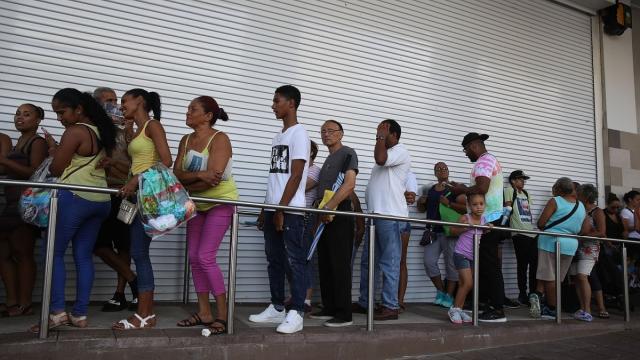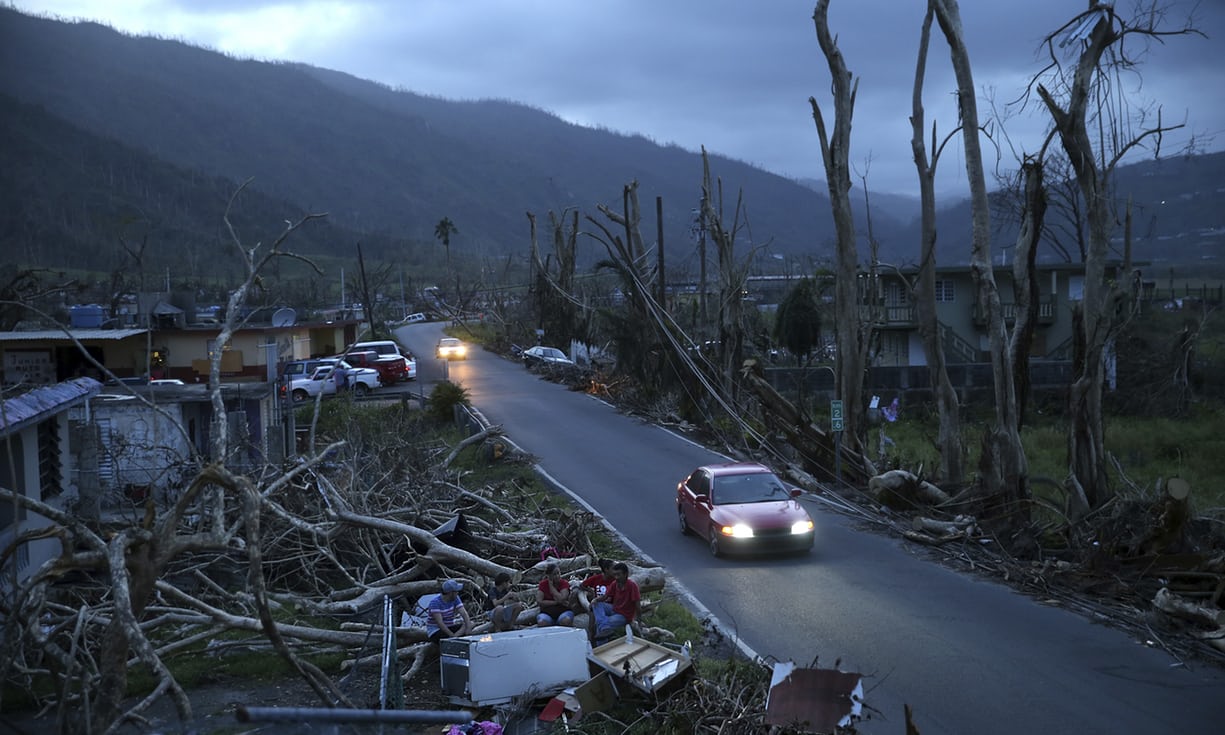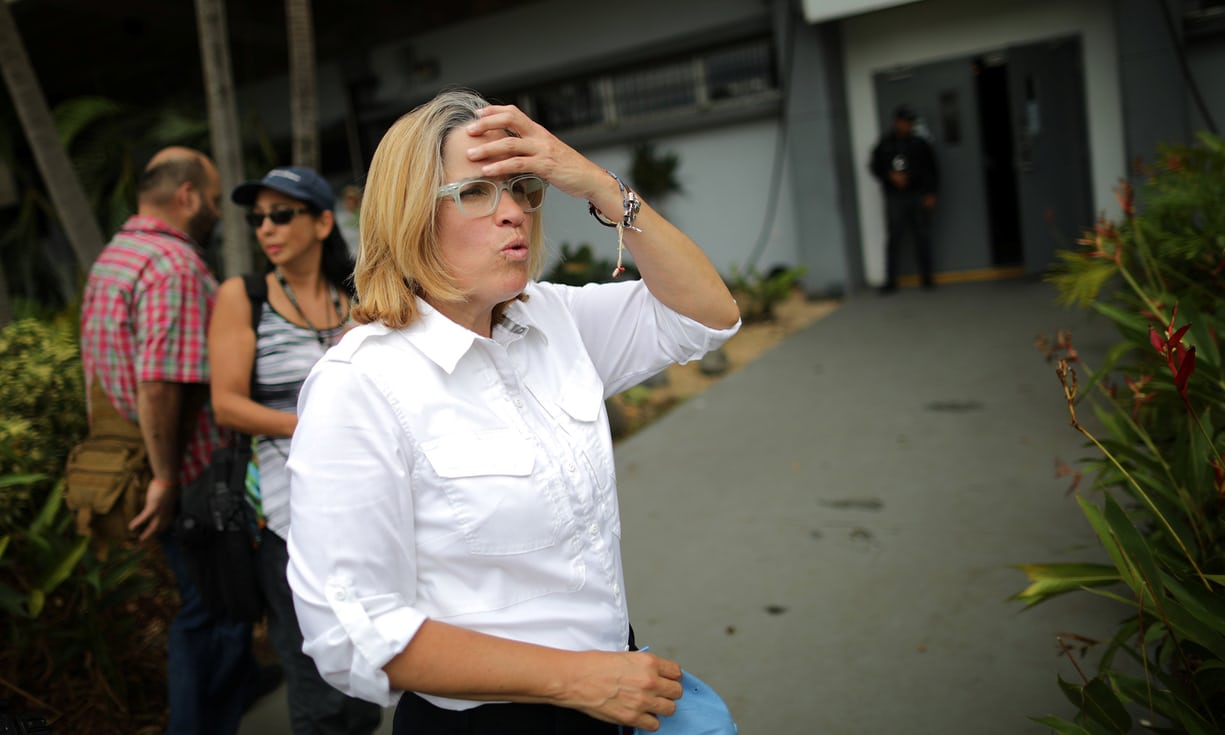
Nine days after Hurricane Maria struck Puerto Rico, thousands of containers of food, water and medicine are stuck in ports and warehouses on the island, as logistical problems continue to stop desperately needed supplies from reaching millions of Americans.
In many parts of the US territory, food, medicine and drinking water are scarce, and amid a growing humanitarian crisis, local researchers have suggested the death toll could be much higher than the 16 deaths reported so far.
On Thursday, the White House temporarily waived the Jones Act – the 1920 legislation which had prevented foreign ships from delivering supplies from US ports to Puerto Rico. But the breakdown of the island’s supply chain has left many concerned that the move will not be enough to get goods to the people who need them most.
Yennifer Álvarez, a spokesperson for Puerto Rico’s governor, said about 9,500 shipping containers filled with cargo were at the port of San Juan on Thursday morning as the government struggled to find truckers who could deliver supplies across the island.
The delivery issue is aggravated by an intense shortage of gasoline. About half of Puerto Rico’s 1,100 gas stations are out of action; at those that are open, people have been queuing for up to nine hours to buy fuel for vehicles or the generators which have become essential since the island is still without electricity.
Rafael Álvarez, vice-president of Méndez & Co, a food distribution company based in San Juan, said he was worried that if fuel was not efficiently distributed soon, people might get desperate.
“I really hope things are worse today than they are going to be tomorrow,” he said. “People are getting very anxious with the heat and the lack of easily accessible drinkable water.”
Because of Puerto Rico’s crippling economic crisis, few people had the money to afford more than a week’s worth of emergency supplies, said Alvarez. .
But if fuel was readily available, Alvarez said, goods could be efficiently delivered around the island and generators would reliably function, resolving many of the territory’s most pressing concerns.
Alvarez’s warehouse is at 100% capacity with shelf-stable products including cereals, granola bars and pasta sauce. Yet although the goods are ready to move to local grocery stores, only around 25% of his normal distribution fleet is available, because of the shortage of fuel or damage inflicted by the storm.
And few stores are open because they need diesel to power their generators.
“The food industry is really intact except for diesel fuel,” Alvarez said. “We need diesel fuel to operate.”
Federal and state officials have said there is enough diesel on the island, but it too has been difficult to distribute. “You know, the gas and fuel issue is not a matter of how much do we have – it’s a matter of how we can distribute it,” Puerto Rico’s governor, Ricardo Rosselló, told NPR.
Hospitals are in desperate need of diesel since they are entirely reliant on generators for power.
Years of financial constraints meant the island’s healthcare system was already seriously weakened before Maria struck – and that could mean the storm’s final death toll is dozens or hundreds higher than the government has reported, according to Centro de Periodismo Investigativo (CPI), a local investigative journalism project.
CPI found hospital morgues were at or above capacity. While funeral homes are unable to operate normally without fuel, relatives cannot be notified of a loved one’s death because of the island’s communications problems and officials cannot efficiently register deaths because the civic government is not functioning normally.
At a Thursday morning press conference, Rosselló said the death toll was still 16 people, but acknowledged that the number could increase.
3 WAYS TO SHOW YOUR SUPPORT
- Log in to post comments

















